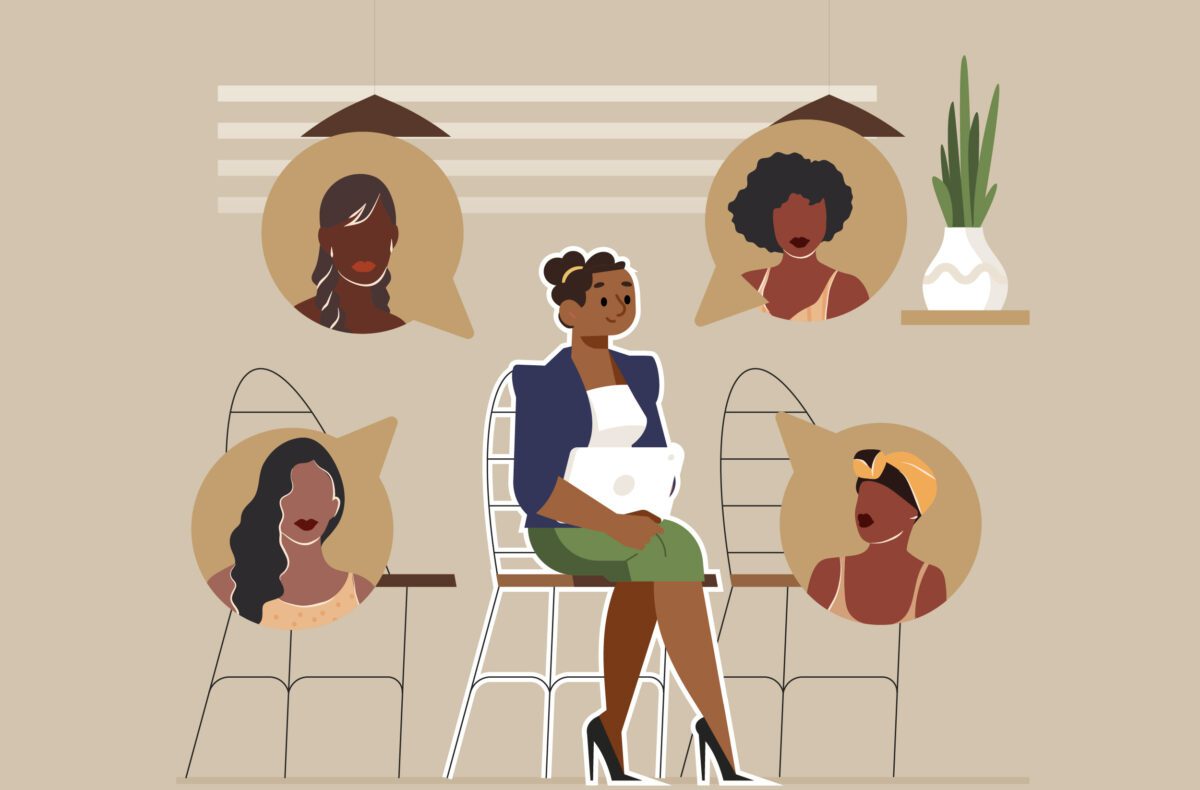
Illustration by Sarameeya Aree
Texas Governor Greg Abbot signed the Crown Act into law this past May, prohibiting race-based hair discrimination in the state’s workplaces, schools, and housing policies. The law will go into effect on September 1st.
While 23 states have passed the law, 27 still allow hair-related discrimination in 2023.
Back in 2016, during my last semester as an undergraduate college student, I asked my Black professor how I should wear my hair in interviews. I had recently transitioned to natural hair from a relaxer or (as some know it) a perm. At the time (and maybe still today), natural or curly kinky hair wasn’t widely accepted. As graduation approached, I wanted to make sure I could land a job, and worried my hair might make me unhireable. She responded with, “Sometimes I wear my natural hair, but it depends on the interview and company if I straighten it.” I based my own decisions off this conversation for future interviews.
Black women have historically faced challenges and biases regarding their natural hair, which can impact their experiences in education, employment, and various professional settings. Black women are targeted and discriminated against in regards to hair both professionally and personally. This hair-based discrimination needs to stop because Black women are so much more than hair. Our experiences matter professionally and personally, and are often overlooked because of the texture or style of hair.
In 2020, the movement against natural hair reached national headlines with a series of instances against hair discrimination in the media. These occurrences are nothing new to the Black community as many have experienced hair discrimination as early as elementary school. How can one define the natural hair of a Black person as “unprofessional” but not that of a white person?
These ongoing cases and issues lead to the bill of the CROWN Act, which stands for Creating a Respectful and Open World for Natural Hair. It prohibits race-based hair discrimination in employment and educational opportunities based on hair texture or protective hairstyles including braids, locs, twist or bantu knots. July 3rd is considered National CROWN Day or Black Hair Independence Day.
Dove and Linkedin conducted a CROWN Workplace Research Study this year to address the systematic social impact of hair bias and discrimination against Black women in the workplace. The study revealed that race-based hair discrimination still remains a widespread issue for Black women in the workplace. Black women’s hair is 2.5 times more likely to be perceived as unprofessional. 66% of Black women change their hair for a job interview. Among that, 41% changed their hair from curly to straight. Black women with coily/textured hair are twice as likely to experience microaggressions in the workplace than Black women with straighter hair, and nearly half (44%) of Black women under age 34 feel pressured to have a headshot with straight hair.
For the longest time, I felt as if my natural hair was not considered acceptable or presentable in certain settings. I thought I needed to straighten my hair or get it done for interviews or special occasions. Eventually, I grew to love my natural 4c hair. To be my true authentic self in interviews, I finally wore my natural curly, kinky hair.
The confidence in my hair would make me feel even more confident in interviews or professional settings. It was important for me to take professional photos for LinkedIn with my natural hair. I wanted recruiters and people who engage with my post to see me for who I really am. They’re going to see my natural hair more than straight anyway.
No one should feel they must change their hair to access employment opportunities or professional advancement. Black women often have to worry about hairstyle choices that will minimize the likelihood of bias. Race-based hair discrimination remains a systemic problem but steps are being taken to address the issues and change the narrative.
The introduction and passage of the CROWN Act is a significant step towards providing legal protections against hair discrimination. To ensure the CROWN Act passes in other states, supporters can sign a petition or help spread the word. Ending hair discrimination will create a more inclusive and equitable environment, allowing individuals to express their natural hair and cultural identities without fear of prejudice or negative consequences.
